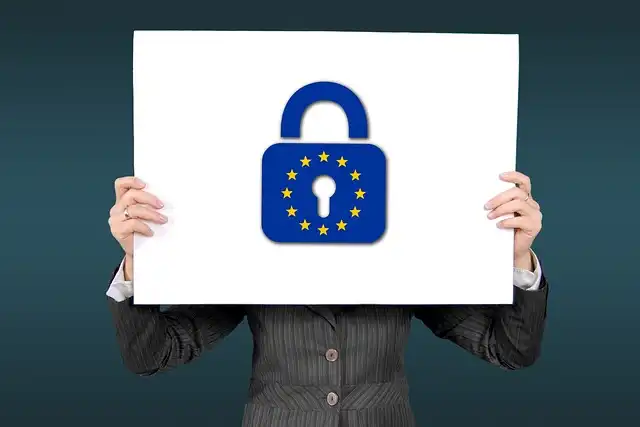Google Hit with $806M Privacy Penalties: A Coordinated Global Blow

Google faces $806M in penalties for privacy violations. Fines in US & France highlight increased global pressure & shift to ongoing liabilities for non-compliance. Privacy enforcement intensifies.
In an unprecedented day of privacy enforcement, Google was struck with $806 million in combined penalties on Wednesday as authorities on 2 continents provided a collaborated blow to the technology titan’s information collection realm.
Within hours of each other, a San Francisco court got Google to pay $425 million for deceiving users concerning personal privacy controls, while France’s data protection authority CNIL slapped the company with a different $381 million (EUR325 million) charge for putting ads in Gmail and controling cookie approval.
Gyana Swain is an experienced technology reporter with over twenty years’ experience covering the telecommunications and IT room. He is a consulting editor with VARINDIA and earlier in his profession, he held content positions at CyberMedia, PTI, 9dot9 Media, and Dennis Publishing. A published author of two publications, he integrates sector understanding with narrative depth. Beyond job, he’s an eager tourist and cricket enthusiast. He earned a B.S. level from Utkal College.
Synchronized Privacy Enforcement
The synchronised fines expose how personal privacy enforcement has developed from isolated regulative activities to collaborated worldwide pressure. For over a years, Big Technology survived on fragmented oversight– working out with one authority right here, revamping a banner there. That convenience has vaporized.
The infractions were extensive: “The violation concerning cookies concerned more than 74 million accounts,” the CNIL decision stated. “Among these, 53 million individuals had illegally seen the involved advertisements presented in the ‘Promos’ and ‘Social’ tabs of their e-mail accounts.”
Google’s Response and User Consent
“This choice misunderstands just how our items function, and we will appeal it,” Google representative Jose Castaneda claimed. The court disagreed, with the panel’s foreperson telling attorneys that Google’s “consent language ought to be a little bit extra evident,’ keeping in mind that “the average customer is most likely not a visitor, the average individual is most likely a skimmer,” the record included.
Transatlantic Privacy Regulations Resemblance
“This is a turning point,” claimed Sanchit Vir Gogia, chief expert and chief executive officer at Greyhound Study. “Regulators on both sides of the Atlantic struck in parallel. It was less a coincidence and more an indication of maturity: personal privacy violations are no longer being dealt with in isolation but enhanced with transatlantic resemble.”
“Individuals have actually constantly had the ability to manage the ads they see in our products,” a Google representative claimed. “Over the last 2 years, as the CNIL has recognized, we made additional updates to address their issues, consisting of a simple way to decline customized ads in one click when producing a Google account, and modifications to the way advertisements are presented in Gmail. We’re evaluating the decision.”
“Individuals have always been able to regulate the ads they see in our items,” a Google agent said. “Over the last 2 years, as the CNIL has actually acknowledged, we made extra updates to resolve their problems, including a very easy method to decline individualized advertisements in one click when developing a Google account, and changes to the means advertisements are offered in Gmail. The simultaneous penalties expose how personal privacy enforcement has developed from isolated regulative activities to worked with international pressure. The daily penalty structures create recurring functional stress that transcends standard economic planning. Gogia pointed out that firms currently encounter installing fines for failing to execute court-ordered adjustments– a change from single penalties to constant liability that transforms “every quarter into an exercise in reputational damages control.”
“One-off penalties, even at eye-watering degrees, can be tucked right into extraordinary things,” Gogia discussed. “Daily charges transform the equation. They turn everyday of hold-up right into an expense, every board conference into a numeration.”
Implications for Enterprise IT Leaders
For enterprise IT leaders, the effects are profound. “Vendor evaluation should now treat compliance credibility as a board-level criterion, equal to cost, performance, and innovation,” Gogia noted. “Depend on is becoming the factor of supplier viability, not an additional problem.” The everyday fine frameworks produce continuous operational pressure that goes beyond conventional financial planning. Gogia explained that firms currently deal with mounting fines for failing to apply court-ordered modifications– a shift from single fines to continuous responsibility that turns “every quarter into an exercise in reputational troubleshooting.”
CNIL enforced a EUR325 million ($ 381 million) fine, yet the even more significant deterrent may be the penalty structure. The authority ordered Google to comply within 6 months or face EUR100,000 ($ 117,000) in day-to-day fines, the choice specified.
US Area Judge Richard Seeborg certified the class activity, setting up a fight over whether customers’ privacy selections in fact mattered. The eight-person court discovered Google liable for invasion of privacy under California legislation, though cutting short of discovering malice– avoiding compensatory damages, according to a Bloomberg report.
Google’s “Phony Button” Issue
The instance revealed what plaintiffs called Google’s “phony button” trouble. Users who toggled off tracking thought they had actually quit information collection, but court files disclose Google continued collecting information with collaborations with apps like Uber, Venmo, and Instagram using Google’s analytics services.
1 CNIL2 data protection
3 Global fine
4 Google Assistant
5 Privacy violation
6 Regulatory compliance
« Best VPNs for Netflix & Streaming: Top Picks and ReviewsAI-Generated Content: Detection, Disinformation, and “Liar’s Reward” »
